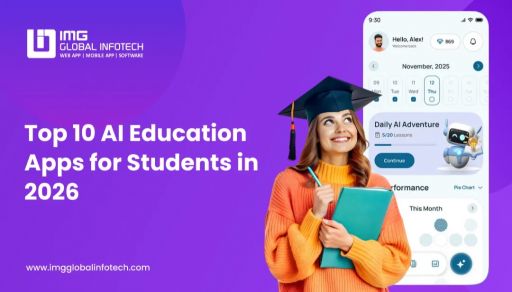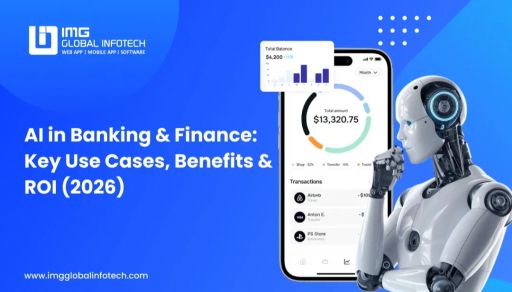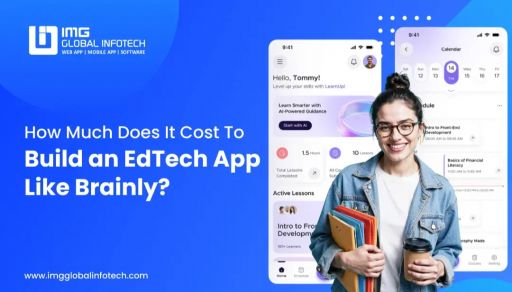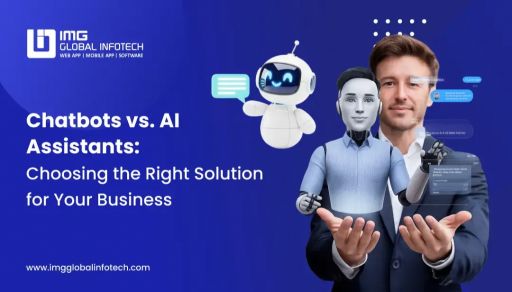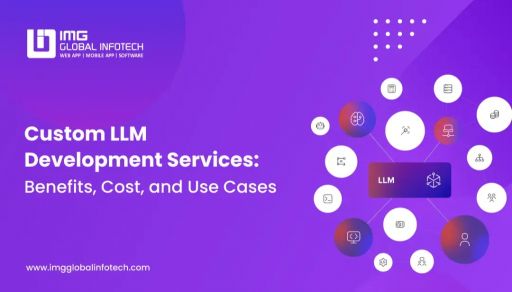Top AI Features Powering Next-Gen Mobile App Development
Mohit Mittal
Jun 18, 2025

Artificial Intelligence (AI) is no longer an unfamiliar concept now it's a core driver behind today’s most innovative mobile apps. From personalizing user experiences to automating complex tasks, AI is transforming the apps we use every day, helping them feel more personal, more intuitive, and honestly, just more helpful.
Think about how Netflix recommends what to watch next, or how your fitness app adjusts your routine based on your progress. That’s AI doing the heavy lifting behind the scenes. For businesses and developers, tapping into AI based mobile apps means unlocking a new level of user experience, one that adapts, learns, and improves with time.
In this article, we’ll walk you through some of the top AI features that are helping modern mobile apps stand out. Whether you’re working on an eCommerce app development, a health tracker, or even a social platform, these AI tools can give your app the edge it needs to truly connect with users.
1. Personalized User Experiences
Personalization is one of the most impactful AI features for mobile apps. By analyzing user data, such as in-app behavior, browsing patterns, purchase history, and even time spent on certain screens, AI can deliver a unique experience tailored to each user.
For example, a live streaming platform can show different content thumbnails, reorder playlists, or suggest shows based on what a user has previously watched. Similarly, eCommerce apps can dynamically rearrange categories or highlight offers based on browsing preferences. This kind of personalization not only improves engagement but also builds long-term loyalty.
2. Conversational AI: Chatbots & Virtual Assistants
Building AI-powered chatbots and virtual assistants have revolutionized how users interact with mobile apps. These bots aren’t just questions responders, they use Natural Language Processing (NLP) and machine learning to understand user intent, respond to queries contextually, and even hold meaningful conversations.
AI mobile apps across industries, like banking, travel, or food delivery apps are using conversational AI to handle support queries, process transactions, offer suggestions, and guide users through complex tasks. The more the bot interacts, the better it gets at understanding and helping users, which drastically reduces the need for human intervention and boosts customer satisfaction.
3. Predictive Analytics
Predictive analytics uses AI and machine learning algorithms to anticipate future user actions based on historical data. This allows mobile app development company to proactively serve users instead of just reacting to their behavior.
In healthcare apps, for instance, predictive models can analyze workout patterns and dietary logs to suggest optimal routines or identify potential health risks. AI In finance apps, predictive algorithms can flag unusual spending behavior or recommend saving tips. By forecasting what users might need or want next, apps become more intuitive and valuable.
4. AI-Powered Recommendations
Recommendation engines are arguably one of the most visible applications of AI in mobile apps. These systems analyze user preferences, behavior, and interactions to recommend products, services, or content that are most likely to interest them.
For example, in AI shopping app development, AI can suggest products based on your purchase history, what similar users have bought, or even what’s trending in your area. In a learning app, it might recommend courses based on your interests and past performance. These smart recommendations not only enhance the user experience but also increase engagement, conversions, and sales.
5. Voice & Speech Recognition
Voice technology has become a game-changer for AI based mobile apps. Thanks to AI, mobile apps can now understand and respond to voice commands, enabling users to interact with their devices in a completely hands-free manner.
This feature improves accessibility for users with disabilities and adds convenience for everyone. For instance, users can dictate messages, set reminders, search for content, or control app functions, all by speaking. Apps like voice assistants, note-taking tools, and even banking apps are now integrating speech recognition to simplify the user journey.
6. Facial & Image Recognition
Facial and image recognition technologies are powerful AI features for mobile app development that enhance both security and user experience. These capabilities allow apps to recognize users’ faces for biometric authentication, scan documents or barcodes, and enable AR features.
In banking apps, face recognition provides a fast and secure way to log in. In fashion or makeup apps, image recognition helps users virtually try on outfits or cosmetics. In educational apps, students can scan handwritten notes for instant digitization. The range of applications continues to grow, powered by computer vision and deep learning models.
7. Smart Search Capabilities
AI has redefined how search functions work inside mobile apps. Rather than relying on simple keyword matching, smart search uses AI to understand user intent, auto-complete queries, and even interpret voice or image inputs.
For instance, a shopping app might let users upload a photo of a dress they saw online to find similar products in its catalog. A travel app development could allow voice-based searches for destinations, hotels, or packages. By making search more intuitive, AI significantly improves usability and helps users find what they’re looking for faster.
8. AI-Enhanced App Security
Security is a growing concern in mobile apps, especially those that handle sensitive data like payments or personal information. AI helps build smarter, more adaptive security systems that can detect threats in real-time.
AI-based security features monitor usage patterns and flag anomalies, such as sudden location changes or unusual login times. Some mobile apps use behavioral biometrics like typing speed or touch patterns, for additional authentication. Fraud detection systems powered by AI can identify and block suspicious transactions instantly, providing users with a safer experience.
9. Automated Reasoning
Automated reasoning is an advanced AI feature that allows apps to make logical inferences based on complex data sets. It enables decision-making in apps without human input, which is valuable in fields like healthcare, legal, education, and logistics.
For example, a legal app might suggest possible outcomes for a case based on precedents. A diagnostic health app can suggest treatments based on symptoms and historical data. This kind of intelligent reasoning brings apps closer to human-like decision-making and adds immense value to users who rely on critical insights.
10. Real-Time Language Translation
Real-time translation is one of the most practical uses of AI app development aiming to serve global audiences. By integrating AI-powered translation engines, apps can convert text, speech, or even images into different languages instantly.
This feature is especially useful in travel, education, and global eCommerce apps. A user traveling abroad can point their camera at a menu and see it translated live. Learners can communicate with teachers across language barriers. Businesses can serve multilingual audiences without the need for separate apps.
11. AI for App Testing & Maintenance
AI isn’t just transforming the front-end experience, it’s also making app development faster and more efficient. During the testing and QA phase, AI tools can automatically detect bugs, generate test cases, and even predict areas prone to crashing.
Once the app is live, AI can continue monitoring performance, user feedback, and usage data to identify problems early. This continuous feedback loop ensures the app remains stable, responsive, and optimized, reducing manual effort for development teams for hire and improving product quality overall.
Conclusion
The integration of Artificial Intelligence into mobile app development isn’t just an emerging trend, it’s a major leap toward creating apps that are more intelligent, personalized, and future-ready. From predictive analytics and personalized recommendations to advanced security and real-time translations, Artificial intelligence is reshaping how apps engage users and solve real-world problems.
For businesses looking to stay ahead in the digital race, working with an experienced AI development company can make all the difference. The right partner can help you identify the best AI features for your app, implement them seamlessly, and ensure they evolve with your users' needs. Whether you’re building a new app or upgrading an existing one, now is the time to harness the power of AI and unlock its full potential in mobile innovation.
Mohit Mittal is the co-founder of a leading IT company with over a decade of experience in driving digital transformation and innovative tech solutions. With a strong background in software development, Mobile app development, E-commerce, business strategy, and team leadership, Mohit Mittal is passionate about helping businesses scale through technology. When not solving complex tech challenges, he enjoys sharing insights on emerging trends, entrepreneurship, and the future of IT.



